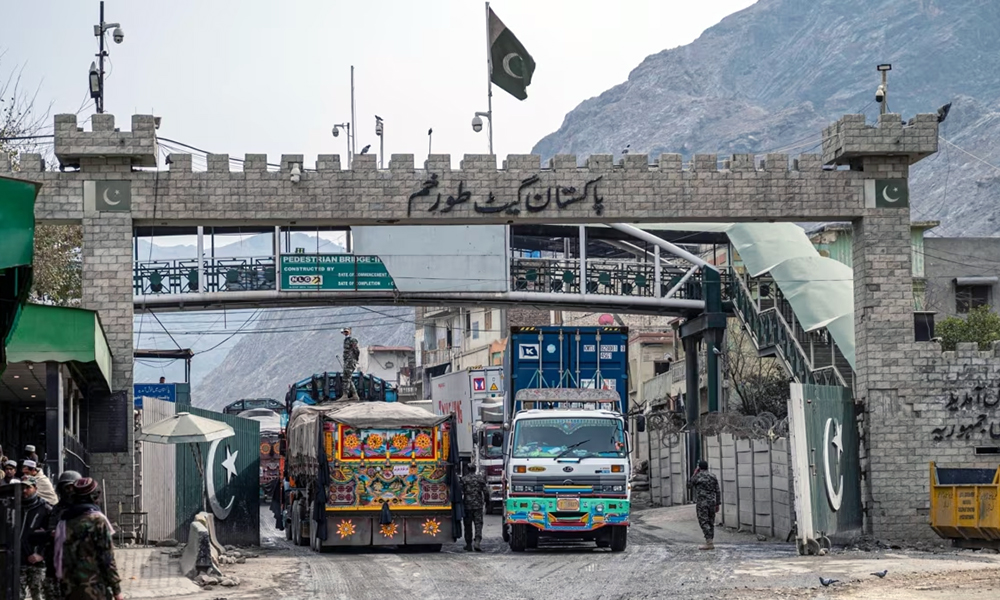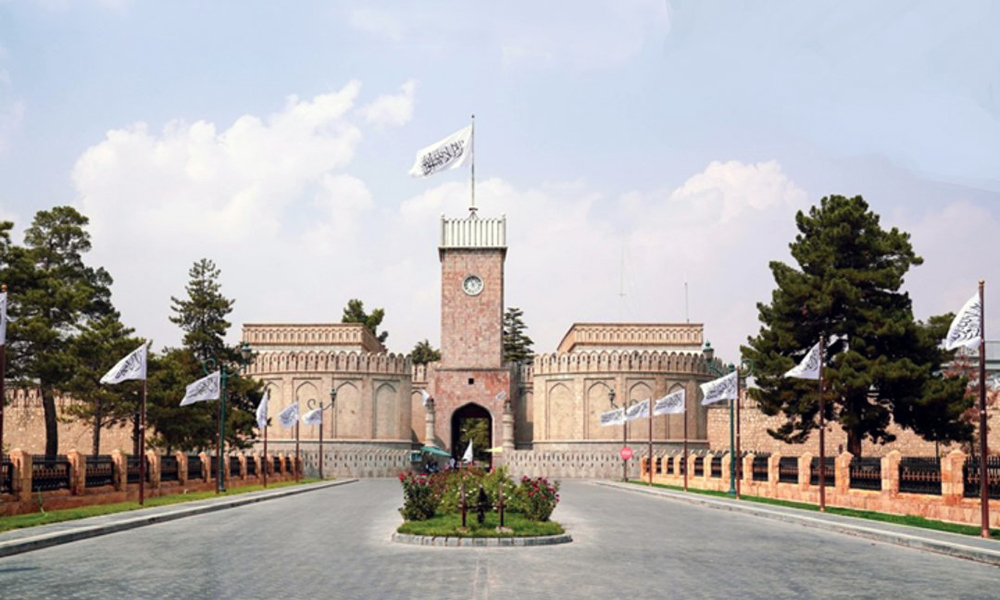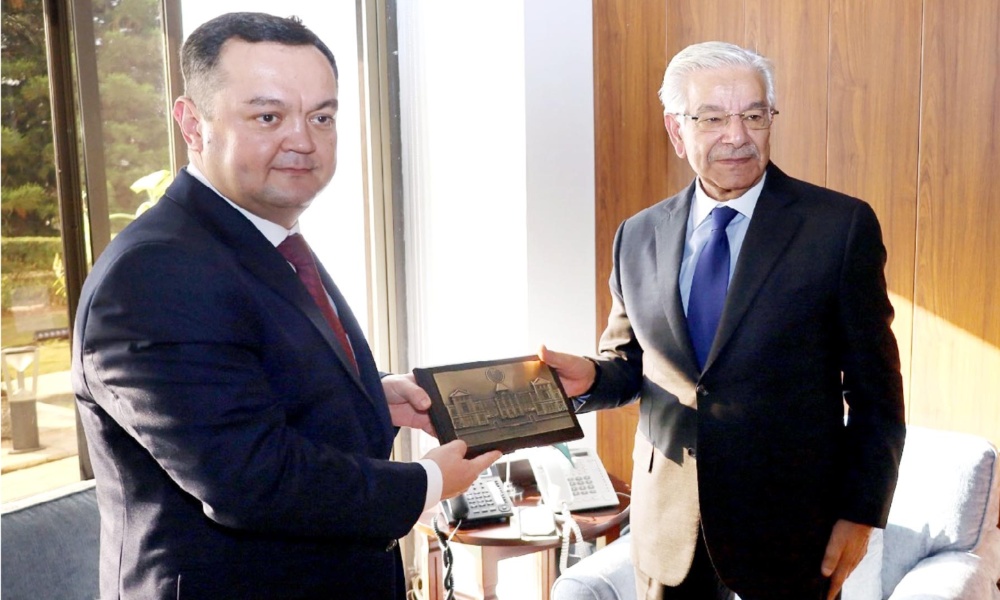Business
Afghanistan looking to get oil, gas from Russia; hoping to send dry fruits to Moscow

The Islamic Emirate of Afghanistan has shown interest in buying oil and gas from Russia and continuing work on the Turkmenistan-Afghanistan-Pakistan-India (TAPI) gas pipeline project.
Pakistan’s Business Standard reported that this comes after Russian energy giants like Gazprom have been hit by sanctions from the Western countries.
However, Jamal Nasir Garwal, the IEA’s charge d'affaires in Moscow, has reaffirmed Afghanistan's ambition of developing the energy partnership with Russia.
"Yes, we are negotiating in the sphere of business and finance. We are determined and very much want to develop economic cooperation with Russia so that there is progress in relations.
“As for specific areas, we are interested in purchasing fuel and gas, these are the most important areas at the moment, what our country needs in the first place," said Garwal in an interview with Russian state-owned news agency RIA Novosti.
The Afghan charge d'affaires said the IEA government is relying on Russia to restore the infrastructure, build buildings, roads and other necessary facilities because it had helped Afghanistan in the past.
The negotiations, he said, are currently underway through the Ministries of Trade of Russia and Afghanistan as Kabul remains "determined" to sign specific agreements soon, Business Standard reported.
"We also want our dried fruits and other agricultural products to be delivered to Russia, we are interested in developing this direction. While we have not determined the specific details, but we are negotiating for the future. At the same time, we are not talking about some kind of barter," Garwal said.
He also said the top leadership in Kabul remains keen to continue the work on the TAPI project, which has already seen more lows than highs since the first TAPI summit held in Ashgabat in December 2010.
With a total length of nearly 1814 km -- 214 km of which falls in Turkmenistan, 774 km through Afghanistan, and 826 km in the territory of Pakistan before reaching Fazilka in India's Punjab -- the mega gas pipeline project would connect Turkmenistan, one of the largest energy suppliers in the world, with the South Asian countries.
"Negotiations are underway so that our cooperation within the framework of the project continues... Most importantly, we are very pleased with the security situation: the threats that were before are gone," said Garwal.
Business
Daily truck clearances at Torkham drop from 400-500 to 5-10

Pakistan’s Sarhad Chamber of Commerce and Industry (SCCI) has said that daily truck clearances at Torkham crossing have declined from 400-500 to 5-10.
SCCI President Fazal Muqeem Khan said this at the signing ceremony of a memorandum of understanding (MoU) with the Pakistan-Afghanistan Joint Chamber of Commerce and Industry to promote bilateral trade and cooperation.
He said the volume of trade between Pakistan and Afghanistan had fallen from $3 billion to $1 billion annually.
Fazal Muqeem also highlighted the adverse impact of the 2% Infrastructure Development Cess (IDC) imposed by the Khyber-Pakhtunkhwa government on trade and transit.
Business
Turkish scholars, charity officials assess investment prospects in Afghanistan
Officials pledged to encourage Turkish investors to explore and capitalize on investment opportunities in Afghanistan

Afghanistan’s Acting Minister of Energy and Water, Mullah Abdul Latif Mansoor, met with a delegation of Turkish scholars and officials from the Adif Charity Foundation on Tuesday to discuss various political, religious, and social issues.
According to the Ministry of Energy and Water, Mullah Mansoor praised Adif’s humanitarian efforts in Afghanistan and highlighted the country’s ample resources for energy production.
He emphasized that Afghanistan currently offers a favorable environment for investment in all sectors, assuring the Turkish delegation of the Islamic Emirate’s commitment to ensuring the safety and security of investors and their assets.
In response, Adif officials pledged to encourage Turkish investors to explore and capitalize on investment opportunities in Afghanistan, signaling a potential boost in economic and developmental cooperation between the two nations.
Business
Uzbek envoy to Pakistan discusses Trans-Afghan Railway project with Pakistani minister
The Trans-Afghan Railway project is expected to serve as a powerful stimulus for trade and economic integration among numerous countries in the region

Regional connectivity projects including the Termez-Kabul railway line, the Trans-Afghan Railway, and the multimodal Belarus-Russia-Kazakhstan-Uzbekistan-Afghanistan-Pakistan transport corridor, are key to the region’s success, the Ambassador of Uzbekistan to Pakistan Alisher Tukhtayev said during a meeting with Pakistan’s Defense Minister Khawaja Asif on Friday.
The two officials discussed a range of issues as well as coordinating efforts to ensure stability and deepen economic integration in the region.
Asif however pointed out that Tashkent has become an important hub for regional cooperation, Pakistani media reported Monday.
Special focus was given to the implementation of the Trans-Afghan Railway project, which is expected to serve as a powerful stimulus for trade-economic integration to numerous countries.
The ambassador said the governments of Uzbekistan, Pakistan, and Afghanistan are actively cooperating in the implementation of joint economic and infrastructure projects and one of them is the construction of the Trans-Afghan Railway.
He said the “Termez-Kabul-Peshawar” railway project plays an important role in restoring ties of regional connectivity between Central and South Asia.
He added that once the project is launched, the volume of trade will increase significantly and shipping costs will decrease.
Tukhtayev said the railway connectivity will contribute hugely to regional stability and overall prosperity by aiding Afghanistan’s economic recovery.
He also said the project will facilitate the delivery of Uzbek goods to world markets through Pakistani ports and will open up a new route for Pakistan to export its products to Central Asian, and European markets.
According to him, the Trans-Afghan railway will be able to carry up to 20 million tons of cargo per year, and transportation costs will decrease by 30-35% and timing of deliveries will be cut from two weeks to three to four days.
He also stated that the international cooperation project on the development of the multimodal transport corridor Belarus-Russia-Kazakhstan-Uzbekistan-Afghanistan–Pakistan is being actively promoted.
[embed]https://youtu.be/2Osh4f_dA5Y[/embed]
-

 Latest News4 days ago
Latest News4 days agoAfghanistan seals T20I series victory over Zimbabwe
-

 World4 days ago
World4 days agoSyrian clerics in former Assad stronghold call for national unity, democracy
-

 Latest News4 days ago
Latest News4 days agoU.S. sentences Afghan man to 30 years in prison for narco-terrorism and witness tampering
-

 International Sports3 days ago
International Sports3 days agoMessi vs Ronaldo: A look at their market values over the years
-

 Latest News4 days ago
Latest News4 days agoInvestment in Afghanistan’s pharmaceutical sector reaches $300 million: Union
-

 Latest News4 days ago
Latest News4 days agoChinese, Tajik officials discuss Afghanistan
-

 Sport4 days ago
Sport4 days agoAfghanistan’s Gulbaddin Naib fined 15% of match fee for dissent
-

 Regional3 days ago
Regional3 days agoHezbollah chief says group lost its supply route through Syria

























